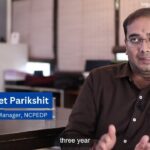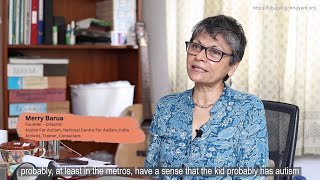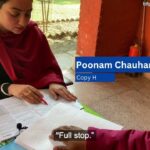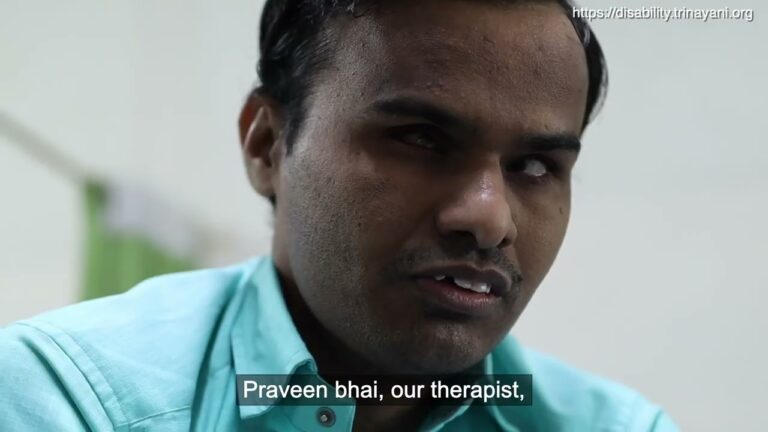Speech disorders and societal impact
This film delves into the various types of communication disorders, their causes and how they require different approaches for treatment. Speech pathologist Radhika Poovayya emphasizes the importance of catching these issues early, as timely intervention can lead to better outcomes.
The film also addresses the emotional and professional impact of speech disorders, highlighting the societal ridicule faced by people with speech, language and developmental disorders and the need for greater awareness and sensitivity.
The ability to communicate is what makes us human, and our world uses an oral form of communication.
That means we use our voice, we use words and sentences to express ourselves.
So, an impairment in communication impacts individual in all aspects: personal life, professional life, social life.
It’s a very invisible disorder and it’s very uh it isolates a person, which is not easy to relate to.
People will say, ‘oh he only doesn’t talk, he’s okay’, but he’s not included in anything because his communication skills are not up to the mark, right?
So this person with a communication disability gets left out of society.
What do you think can be done to clear up misconceptions about individuals with speech and language disorders?
Since communication disorders are invisible, the understanding of them are also very less.
People that understand this disorder is also very less and its affects a very small percentage compared to other disabilities and that is what leads to so many misconceptions.
So if a mother is worried about her child’s development and that he is not talking on time, nobody will encourage her to go and seek professional help, instead they’ll say, ‘nothing to worry, he’s not talking but somebody I know talked at seven, somebody talked at five, and today you know where he is?’
So this mother who had identified it early is made to keep quiet, right?
So the fact that speech milestones are more crucial than motor milestones has to be uh announced and has to be propagated to mothers today that ‘watch speech milestones, they are important’, because good speech, good communication will see good education and then everything else will follow but if it lags behind in communication, everything gets affected.
As a speech pathologist, how do you define speech and language disorders?
As speech pathologists, we separate speech disorders and language disorders.
So, a speech disorder involves voice affected or fluency affected or clarity affected.
So, this can happen at any age.
Then, language disorders are the inability to form a sentence, to use words as a form of communication.
The reasons for this can be hearing problems, brain damage, autism, a stroke, any of these.
But these are two different disorders and you treat them separately.
Some people can have both, a speech problem as well as a language problem.
Like people with deafness, they may not be able to produce cl…clear speech, the words may not be clear and they will struggle to make sentences but there are people who just stammer and they don;t have a problem in making words and sentences, they just have a fluency issue, right?
So these conditions have to be treated separately.
Under speech problems, the voice problems affect people who use their voice a lot.
So, a professional voice users like teachers might have hoarseness of voice, a singer might lose his ability to sing and therefore might lose career opportunities, alright?
And there is another very small, it’s a very easy condition to solve but it is made fun of like, too much in the society: a male having a female voice.
That can be solved in a week’s time with any speech therapy, but the man is ridiculed and has to bear so much of humiliation, just because his pitch is not okay.
And he’s you know, it is equated to being not strong because his voice is feminine, okay?
So these impact the person emotionally and professionally a lot.
In fluency, we look at stammering, where the person cannot get the words easily, he gets a block or the words just don’t come or the words get repeated, like instead of saying a word ‘Bangalore’ he might say ‘Ba Ba Ba Bangalore’, otherwise he might just get stuck and nothing comes out from his mouth, alright?
So this has a very severe impact on the flow of communication and people who stutter are unfortunately equated for being stupid, okay?
Our Hindi movies make fun of people.
When they want a comedy, they’ll put a boy who stammers.
They don’t realize what an emotional trauma this person with stammering, has, every day of his life because he knows he is going to be ridiculed, okay?
The other problem can happen is clarity of speech that means you cannot pronounce the sounds correctly.
Because our profession is very young, today I get adults saying I’m not able to pronounce the ‘ra’ sound, I cannot know the difference between ‘cha’ and ‘sha’ and therefore I’m nervous to take on more responsibility in my office, right?
And now after they are 25, it’s just impossible to correct.
It requires too much effort and so much time, that most people give up.
So we say catch them early, by the time they are five they should be able to pronounce all the sounds.
And a speech pathologist is the person who can tell you, ‘don’t work on a particular sound, don’t take the judgment on your own, decision on your own because the later you do, the more difficult to correct it’, alright?
So we also see voice problems in people who have cancer of the vocal cords and they lose their voice box completely.
This is a very very traumatic condition but today’s advancements there are lots of uh processes that can help them get back, their voice.
So, speech pathologists work with these people also.
How do speech and language disorders occur, and how do they affect a person?
So, a language disorder isolates the person much more than a speech disorder because they’re unable to form a sentence, they’re unable to communicate effectively, right?
And therefore education gets affected, just because a child can say all the nouns, he can rattle off the nouns and alphabets, doesn’t mean he can communicate his needs, right?
So language disorders have to be identified early, and therapy given in a very systematic manner to build the child’s ability to use words in all contexts to communicate.
So, a language disorder can happen because of a brain damage, or a metabolic disorder that affects the brain, so we call them uh developmental disorders.
So, brain damage or lack of brain development, like a Down’s child or a child who’s had brain uh slow growth, he will not speak in many words, right?
So education is not going to happen, then you have children who have hearing normal, they have intelligence, but they’re not able to figure out sentences.
So this population is very prone to delinquent behavior because they are not being lazy, they just can’t figure out the grammar of a language, alright?
It is like learning disability for reading and writing.
We have children who are able to, are smart, they know exactly what’s going on, but they cannot communicate in sentences and therefore by the time they come to 8th standard, 9th standard they can’t cope with the education load, alright?
So these children need very systematic help.
Then we have deaf children who are identified, if they are identified early, they are able to pick up the grammar but if they are identified at 3 and 4, grammar of the language is very hard.
So, they never match up to their age group and therefore they lose out on education opportunities and of course, professional opportunities.
Could you share instances of language disorders in adults, their effects, and potential interventions?
In adults, a normal adult can have a stroke and lose all the languages that he knew, alright?
We have clients who have said, ‘I could speak seven languages’ and a stroke has erased everything and then building communication for such patients is very very tough.
Uh they struggle to either understand language or they struggle to make a sentence, okay, so they will not, so they will be perspiring and they cannot get a word out.
It’s like we have a tip of the tongue problem, they have it all the time, you know, they cannot get the word out.
And all people with speech language disorders are not doing it on purpose, they’re not being lazy and the mother or parents are not to blame, these are problems that happen and instead of attention being diverted to help the child or the adult, everybody is trying to blame and find the cause.
Sometimes a cause is not known, you take action, move on and get action and help the child, right, or the adult to be able to bridge this gap.
So, for adults we use tabs now.
Today, lot of children are…the acc…the acceptance of a tab has become okay today.
Even 10 years ago when I said ‘let’s use a tab, nobody wanted to use’, today children with autism are benefitting tremendously with a tab.
In adults I’m not able to get that willingness to use a tab for communication as a medium.
Parents and people still say, ‘no I want speech to come back’, right, so they don’t think of the person who is having the problem.
He needs just a means of communication, he doesn’t have to be perfect!
Because his brain is damaged he needed, he will never, may not ever be perfect, but some form of communication should be uh thought of for this person.
Okay, a brain damage that results in a stroke can wipe off all the languages that you know, so this person who knew 7 languages before a stroke can forget all the languages, and then a speech pathologist has to work on building his ability to produce words, make sentences and get basic functional communication going.
You know, it’s a very traumatic problem because an adult who is at the prime of his life can have a stroke at any age actually.
We have children who are 20 years old and this condition of losing the ability to communicate because of a stroke is called Aphasia and this is a very rare condition, luckily, but it is very traumatic.
There is a great need for the family to know that the person needs support and he’s not being lazy and not trying hard enough.
Let us find a better way for that medium of communication, right, and make his life worth it because this person, adult, who’s had a stroke and Aphasia, he’s isolated from his family.
He can no longer participate in family discussions, so it’s a very isolating problem.
So, all speech and language disorders isolate a person and therefore our society must be sensitized towards them and not ridicule and make fun of them.
Mothers have to be given the support, families have to be given support, we are so happy that the government has recognized speech and hearing problems as a disability and the support is being given to families but our country has a long way to go in change of attitudes and early identification.
aphasia, assistive technology, autism communication, brain damage, communication disorders, developmental delays, developmental disorders, disability awareness, early intervention, fluency disorders, Hearing Impairment, invisible disability, language disorders, professional support, social isolation, speech milestones, speech pathology, stammering, stroke recovery, voice disorders


















